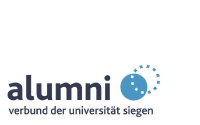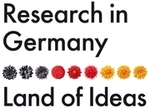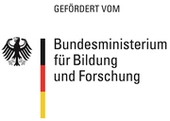- Alexander von Humbold-Stiftung prämiert Konzept zur Vernetzung der Forscher-Alumni
- Forscher-Alumni im "Querschnitt 5/2016"
- Forscher-Alumni im "Querschnitt 4/2017"
- Forscher-Alumni im "Querschnitt 1/2018"
- Forscher-Alumni im "Querschnitt 2/2018"
- Forscher-Alumni im "Querschnitt 3/2018"
- Forscher-Alumni im "Querschnitt 1/2019"
- Forscher-Alumni im "Querschnitt 2/2019"
- Forscher-Alumni im "Querschnitt 3/2019"
- Forscher-Alumni im "Querschnitt 1/2020"
- Forscher-Alumni im "Querschnitt 2/2020"
How has international research been affected by the current global pandemic? Insights from our research alumni network
Throughout 2020, the way in which we live and work has changed significantly due to COVID19. To see how international research partnerships were affected during this turbulent time, we reached out to members of our research alumni network and asked them about how their research has been affected. We received interesting insights from researchers based in many different countries, including China, Ghana, Mauritius, Brazil and the USA. The respondents also specialised in a wide range of different subjects, such as Engineering, Media Science, Physics, Social Work and Chemistry.
Across the research spectrum there was a clear shift away from in-person classes and conferences to online ones. This adjustment did result in challenges for participants and organisers, but the new format also had its advantages. The biggest benefit of being online was the ability to feature guests from around the world without the time and cost of traveling.
Working in a socially-distanced world
Regarding the progress of their research throughout the pandemic, it tended to depend on the extent to which lab work was necessary. Those who did not need to perform lab work were usually able to continue their work from home with minimal disruption. Face to face conversations which would normally take place within their institution were instead replaced by regular meetups through videoconferencing software. Research alumni who are currently based in Siegen reported feeling looked after by their hosts and the university. For those based outside of Germany, the severity and extent of safety measures varied greatly, in line with how different countries have handled the pandemic. When asked about whether the pandemic was under control where they are, those outside of Germany gave differing answers, reflecting the diverging approaches to getting COVID-19 under control across the world.
Things were more difficult for those whose research requires access to lab equipment, for all of the respondents lab work was halted sometime between the end of March and the beginning of April, however most were able to return to their lab in the early summer as long as various safety and hygiene measures were observed. The most common of which included wearing a face mask, keeping a certain distance from colleagues, and there being a restricted amount of people allowed within the lab at any one time. While these measures did make lab work more strenuous, they were able to continue their research while observing these measures. Some researchers have also had difficulty in obtaining the necessary supplies from abroad to continue their experiments. Negotiations with delivery companies have been necessary to ensure that these supplies could be delivered in future.
For those engaged in social work and social sciences more generally, it is common to gather important data through face to face interviews. Performing these kinds of field surveys has now become substantially more complicated. This is particularly true for those who work with groups considered to be at a high-risk of suffering life threatening complications from COVID-19 should they become infected. Many interviewees are understandably reluctant to meet face to face, and unfortunately not all are able to replace face to face contact with online activity given that not everyone around the world has access to a reliable internet connection.
Maintaining long-term international research collaborations has also become more difficult, while both partners in a research collaboration will typically keep in contact throughout the year, the most intense period of cooperation normally takes place during a research visit, which will usually last anywhere from a few days to a few months. Due to current travel restrictions virtually all research visits scheduled to take place this year have been cancelled or delayed. Despite these setbacks collaboration between researchers has continued online, joint research papers continue to be published, and it is hoped that their research visits can be rescheduled for not too far into the future.
Outlook for the future: A new normal?
As for the long term impact of the current situation on science and research, all those who responded were confident that things would begin to return to normal once sufficient treatment or a vaccination for COVID19 was distributed. However the current situation has given people engaged in research the opportunity to become accustomed to new ways of working. Once there is no longer a need to socially distance, it is likely that at least some conferences, meetings and classes will continue take place online, as a result of greater familiarity with these new working methods and their benefits.
What is expected to have the largest impact on research is not the virus itself, but rather the corresponding economic downturn. In the short and medium term, institutions may be forced to cut back on research funding in order to survive, this would impact all those engaged in research, but particularly those who are still in the early stages of their scientific careers, as they are least likely to have a fixed position. However there is likely to be an increased focus on those sectors of research which are directly related to understanding the spread and treatment of infectious diseases. By investing more into understanding these areas it is hoped that the world will be better prepared for future outbreaks.
Dr. Nowsheen Goonoo, who has undertaken research visits to the University of Siegen in order to collaborate with Prof. Holger Schönherr, is herself engaged in research related to better understanding COVID19. Dr. Goonoo, who is based at the University of Mauritius, is a member of the African Academy of Sciences (AAS). She and other AAS fellows have authored a paper which synthesized current evidence on the global pandemic and examined the particular challenges faced by African nations. They furthermore applied for a grant from the European and Developing Countries Clinical Trials Partnership (EDCTP). If successful, they will use the money to develop rapid and affordable diagnostic COVID19 tests and to better understand the SARS-CoV-2 phylogenetic lineage in Africa.







